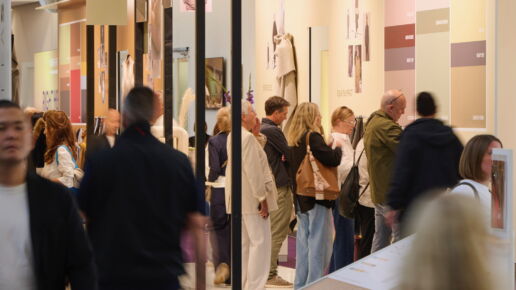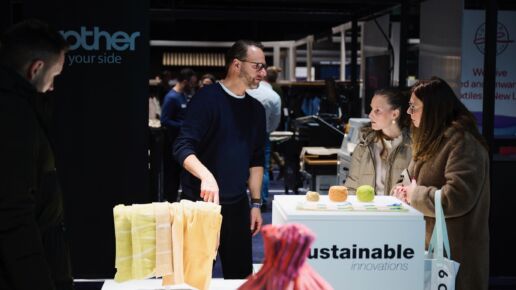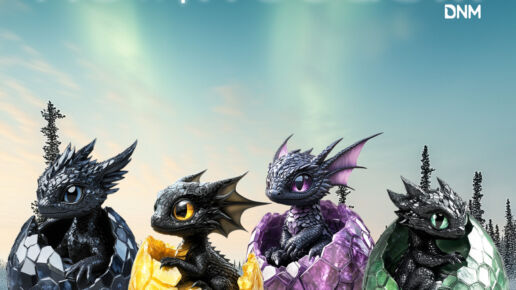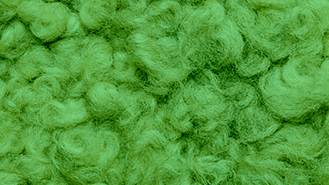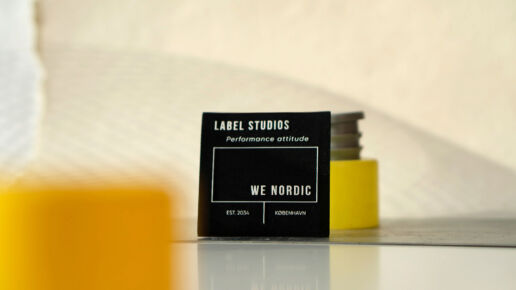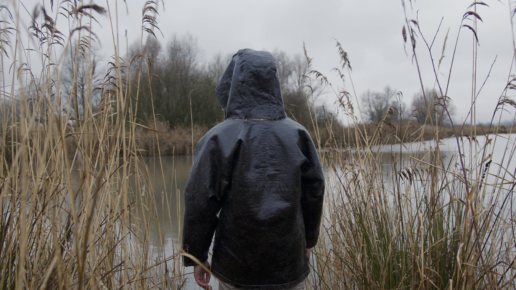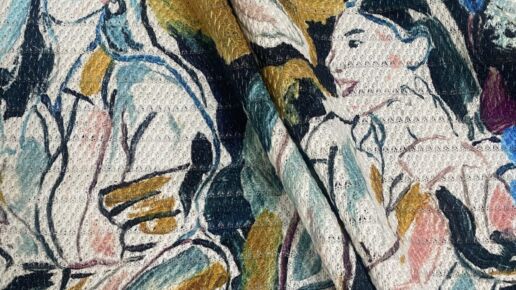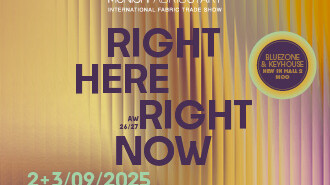Although wool has been transformed into a global industry, so much of Europe’s wool still ends up discarded each year – overlooked, undervalued, and dismissed as waste. However, Beatriz Isca sees wool through a different lens and ‘Wool Matters’ stands as a powerful reminder of how much we can learn from something as seemingly simple as wool.
Wool Matters is the master’s thesis project of the multidisciplinary designer Beatriz. ‘It began with a belief in wool’s power to manifest the intricate connections between land, animals, and people. Beatriz discovered wool’s capacity as a universal language, transcending social, generational, and cultural barriers, and serving as a bridge that connects diverse lives and stories. Her work in ‘Wool Matters’ adopts a post-humanistic lens to understand the symbiotic relationships between people, animals and land. Aware of human and non-human actors in wool’s ecosystem, she has engaged with different actors in the local wool landscape to uncover opportunities and address gaps. She is highlighting wool’s inherent worth, with the hope to encourage a more circular, respectful approach to textiles—one that sees humans, animals, and the environment as interconnected parts of a shared ecosystem.
“The devaluation of local wool in Europe reflects the anthropocentric view and the unsustainable ways of living of modern society, that perpetuates the celebration of capitalism at the cost of ecological degradation and social exploitation,” she says. Looking beyond traditional profit-driven industries and focusing on local and craft-based practices, Beatriz aims to redefine our relationship with wool—and, in turn, with nature.
When it comes to community-centric sustainable practices, Beatriz advocates for a shift back to natural rhythms—those governed by seasons and the meticulous pace of handcrafting—encouraging a more humane and ecologically mindful way of living. Her mission extends beyond mere dialogue; it’s about crafting a vision that repositions decision-making into the hands of local communities. By involving designers more deeply in societal roles, Beatriz believes in empowering communities to challenge and reshape the structures that define our world.
“The devaluation of local wool in Europe reflects the anthropocentric view and the unsustainable ways of living of modern society, that perpetuates the celebration of capitalism at the cost of ecological degradation and social exploitation.”
Pushing for collaboration, Beatriz, a researcher and a communicator, is not just raising awareness but also fostering tangible connections. Through craft-based practices, she amplifies the value of local wool, urging citizens to partake actively. Her workshops and collaborations are not just about crafting with wool; they invite participants to feel, reflect, and react to the broader implications of consumption and production that surround this ancient material.
Bringing ‘Wool Matters’ to Munich meant searching for local collaborations which resulted in weaver Lukas Gschnitzer and local yarns from Rauwerk will be part of the project’s presentation, showcasing the value of local wool. Rauwerk firmly believes in working with, and not against, Mother Nature. Their yarn comes from local Merino sheep and is spun at a family run mill just south of Munich.
Engage with Beatriz Isca’s Vision
THIS MIGHT BE ALSO INTERESTING FOR YOU:
MUNICH FABRIC START – September 25 closing report
4. September 2025
At its 56th edition, MUNICH FABRIC START reinforced its clear positioning. Over two days, the Munich textile trade show brought the fashion industry together with its four show-in-show formats.
Materials as Agents of Change with Simon Angel
1. September 2025
Each season, the Sustainable Innovations forum brings together projects that provoke, inspire, and challenge assumptions. This year is no exception, with work ranging from bio-luxury couture to energy-generating textiles and regenerative materials grown from wetlands.
AUTUMN.WINTER 26/27 FABRIC HIGHLIGHTS & MATERIAL NOVELTIES – PART X
31. August 2025
For the first time in Germany, S2G XR (Style 2 Garment eXtended Reality) will present a live demo of its 3D textile configurator at booth A4.20 Not a teaser.
Living Matter: Bio-Luxury for Future Materials
31. August 2025
Indigo, a colour with a lot of history, is the main focus of this project. Denim has always meant strength and durability, and its roughness is linked to work and usefulness.
BLUEZONE NEWS FOR SEPTEMBER 2025 – PART VI
31. August 2025
At DNM Denim, the journey continues. Inspired by nature’s cycles and guided by Flow Theory, the company moves from Challenge to Focus, and now to Freedom—the phase where potential becomes power.
BIOTEXFUTURE: How to Make Textiles from Fossils
30. August 2025
The program is a group of businesses and universities working together to find scalable, bio-based alternatives.
Additionals Trends Autumn.Winter 26/27 – Part 8
30. August 2025
This collection embodies softness, simplicity, and flow – from soft-touch labels and stretchable materials that move with the body, to a calming palette of pastel tones and organic, natural fibers.
Wetlands Matters – by Marc Wijkmans
29. August 2025
Wijkman’s idea came from a simple but important observation: animals carry seeds across ecosystems in their fur.
AUTUMN.WINTER 26/27 FABRIC HIGHLIGHTS & MATERIAL NOVELTIES – PART IX
29. August 2025
The designs embrace various trend themes – sometimes subtle, sometimes expressive – and lend each fabric its own distinctive character.
MUNICH FABRIC START September 2025 – Outlook
29. August 2025
The countdown is on: in just three weeks, Munich will once againbecome the epicentre of the European fashion and textile industry. During the first week ofSeptember, MUNICH FABRIC START Exhibitions GmbH will unite all key fashion segments underone roof, reaffirming its position as one of Europe’s leading textile trade shows.







